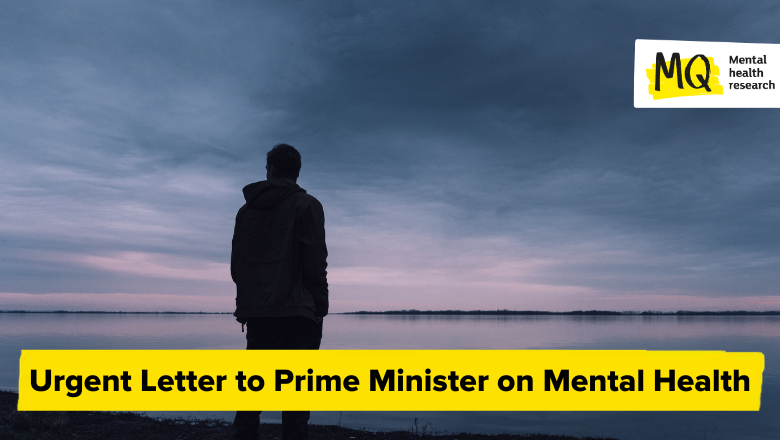The Rt Hon Sir Keir Starmer MP
Dear Prime Minister,
Urgent clarification needed on mental health waiting lists and funding
We are writing on behalf of seventeen major organisations working to improve the UK’s mental health to express grave concerns about mental health waiting lists not being prioritised in your Plan for Change and reports that the government may be planning to axe vital safeguards for mental health funding, when despite mental health services providing care to more people than ever, the waiting list is now 1.6 million.[i]
At a time when mental health services are already stretched beyond capacity, accounting for a fifth of the UK’s disease burden while receiving less than 10%[ii] of NHS funding, reversing progress now would be disastrous. Crucially, it would threaten key government commitments such as the rollout of a reformed Mental Health Act and delivering a shift from hospital to community. It is critical that your government sustains the commitment to the Mental Health Investment Standard (MHIS) and ensures mental health services receive a growing share of the NHS budget so they can meet demand.
The MHIS ensures funding for mental health, allocated by Integrated Care Boards, keeps pace with overall NHS spending. Maintaining this commitment is a necessary safeguard to address the historical underspend in mental health services. This context means that mental health services have been playing catch-up in terms of having the right services, workforce and data in place to meet need, compared to physical health. Only a decade ago, there were significant chasms in our mental health provision, no centralised data, and a workforce that had been decimated through cuts. Amid a challenging financial environment, spending on mental health services declined from 14% of the budget in 2008 to just 8% of the budget by 2016[iii]. The MHIS, alongside other commitments to ensure growth in share of spend, have played an indispensable role over the past decade in efforts to address the care deficit and to progress towards parity of esteem between mental and physical health.
However, there is still progress to be made, and mental health care continues to face unique and very serious challenges that are exacerbated by rising need. Those waiting the longest for elective community mental health care for both adults and children and young people have waited for two years[iv], twice as long as those waiting for elective physical health care. Rethink Mental Illness’ Right Treatment Right Time survey[v] found most people living with a severe mental illness experienced worsening mental health while waiting for treatment, with 42% requiring urgent care and 26% being hospitalised, reversing the shift from hospital to community. Mental health patients also face significantly longer waits in Accident and Emergency departments than those waiting for emergency physical care. Almost half of children and young people with a mental health need are still without help. Overburdened professionals face burnout, exacerbating workforce shortages and reducing the quality of care. Mental health elective waiting lists are not prioritised in the government’s Plan for Change but this is a grave error. Any reduction in funding or failure to ensure a focus on tackling mental health waiting lists will deepen these systemic issues, making it even harder for vulnerable people to access the care they need.
The potential consequences are deeply concerning. For those living with severe mental illness, such as schizophrenia, delays in treatment can escalate into acute crises, compromising the health and safety of the individual; interfering with their ability to engage in education and employment and in extreme cases, even possibly compromising the safety of others. The Right Treatment, Right Time report found that 25% of people whose mental health deteriorated while waiting for treatment attempted suicide, highlighting how a lack of funding for mental healthcare can hinder efforts to reduce suicides. And the devastating attacks in Nottingham underscore the risks when people in need of care fall through the cracks of an overstretched system.
Beyond the personal tragedies, neglecting mental health services carries immense societal and economic costs. As your government’s Get Britain Working white paper illustrated, there is a strong link between poor mental health and economic inactivity. Addressing mental health problems is critical for unlocking economic growth. Left untreated, mental illness can also lead to outcomes such as homelessness and preventable loss of life. Poor mental health already costs the UK economy an estimated £300 billion annually in lost productivity, welfare dependency, and increased healthcare spending[vi]. As well as undermining economic growth, deprioritising mental health would risk exacerbating these costs, as preventable conditions escalate into crises that require far more expensive interventions.
Rather than scaling back, the government should prioritise strengthening mental health services. Investment in recent years has already delivered tangible benefits such as: nationwide perinatal services; early intervention in psychosis consistently delivering against waiting time standards; expansion of eating disorder services for children and young people; and an increase of around 40,000 additional staff.
Investing in and continuing transformation of community-based care, expanding crisis intervention programmes, and addressing workforce shortages are essential to creating a robust and responsive mental health system. This is not only a moral imperative but also an economic necessity.
We were delighted to read in the Labour Manifesto that you committed to “reform the NHS to ensure we give mental health the same attention and focus as physical health”. We urge you to clarify the government’s position on mental health elective waiting lists, the MHIS and Share of Spend and to reaffirm its commitment to achieving parity between mental and physical health care. Safeguarding mental health treatment and care is fundamental to building a healthier, safer, and more resilient society. Anything less would represent a failure of leadership and vision.
We look forward to your response and hope to see the government’s commitment to mental health reflected in its policies and funding priorities.
Your sincerly,







